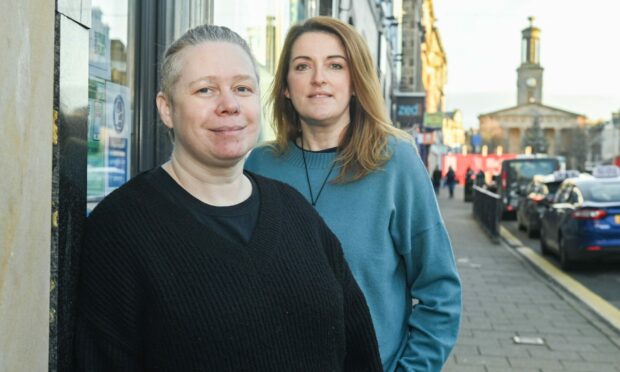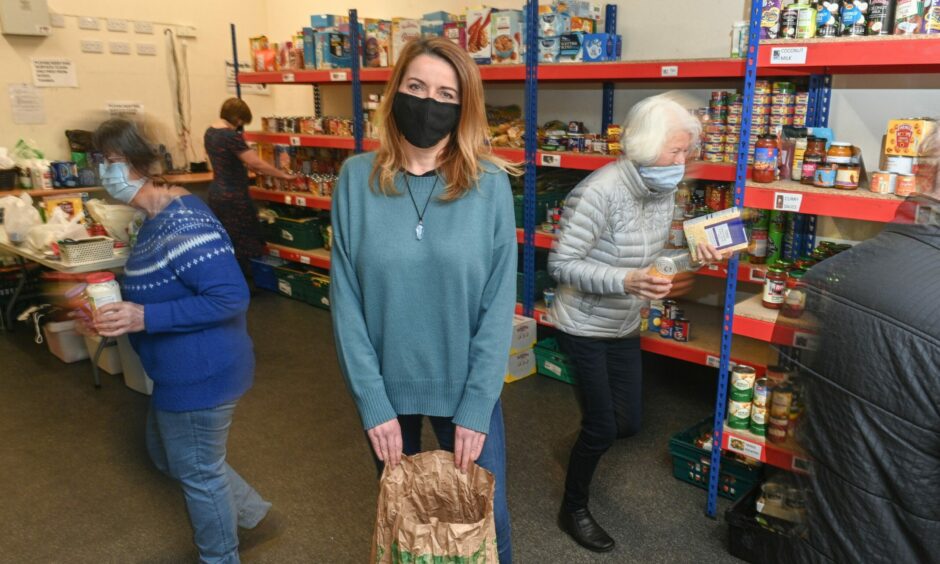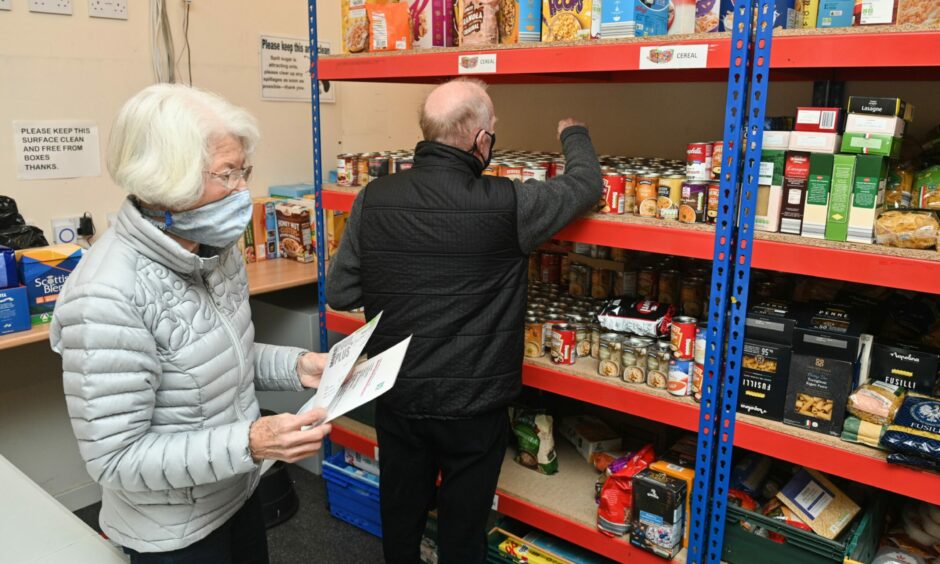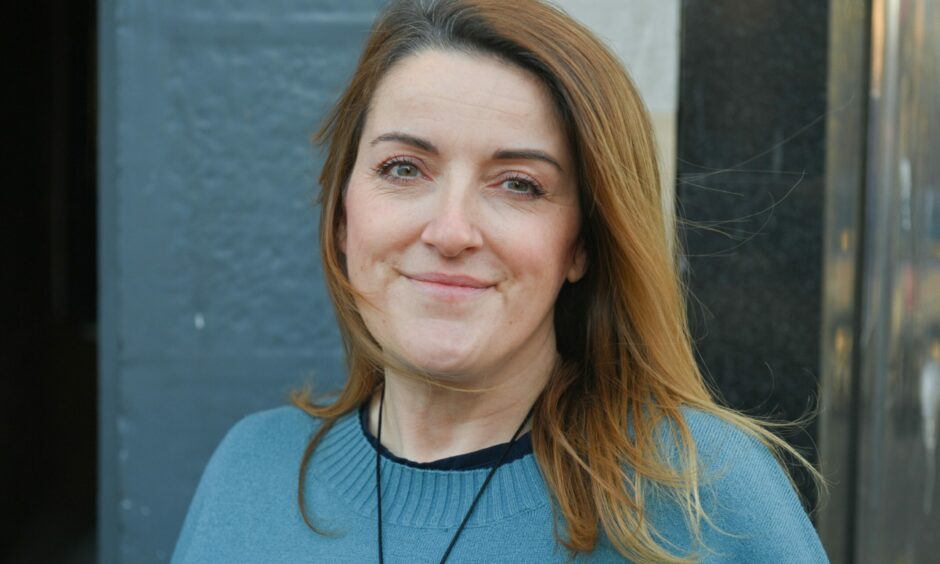One food parcel will typically feed a household for three days.
But what happens when the cupboards are bare again? The crisis that led to them seeking help is likely to still be there with potentially no end in sight.
Breaking the cycle of relying on handouts is a key priority of Moray Food Plus as well as getting rid of the stigma of accepting help from a food bank.
Two years ago the Elgin-based charity unveiled its new name, dropping the “food bank” tag that can deter families from accepting help.
But the change was also designed to show the group focuses on so much more than just distributing food to homes.
As part of the P&J, Evening Express and Original 106’s Big Christmas Food Appeal we want to raise awareness of the help that is out there for anyone struggling.
We’ve teamed up with Cfine – which supports Moray Food Plus as the Grampian network distributor for Fareshare – and are asking readers to do their bit if they can, by buying an item from the charity’s Amazon wishlist or making a donation via their JustGiving page.
At Moray Food Plus, teams run cooking classes to introduce new flavours and teach recipes, family support work is done to strengthen relationships in the home, gardens are maintained to grow their own produce and staff visit primary schools to speak about the issues.
It is hoped the sessions can help households better plan meals and prepare for school holidays.
‘We want to be more than a sticking plaster’
The coronavirus pandemic led to a surge in people seeking support from Moray Food Plus – during April 2020, the first full month of lockdown, monthly referrals hit 1,000 for the first time.
And project manager Mairi McCallum believes the charity has a duty to provide more than just three-day handouts.
She said: “The reason we started doing the other work was to support people before they reached the crisis point.
“Through the food bank we are aware that it can just be a sticking plaster.
“We wanted to focus more on the early interventions with things like family support work to provide helpful steps to stop them reaching that point, and hopefully stop them from getting there again.”
Moray Food Plus provides help to those referred to them by professionals including social workers, health visitors or mental health practitioners but also from religious figures.
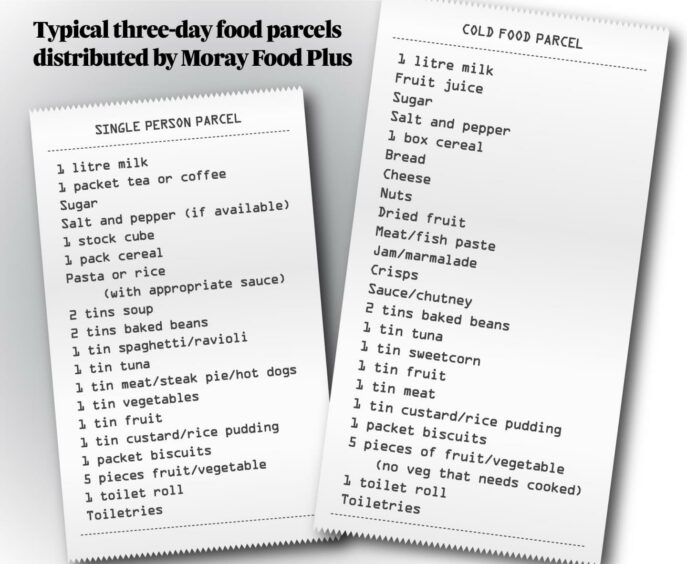
Between April and October this year there were 1,423 referrals to the charity, with support provided to 3,008 people.
However, Christmas remains its busiest time of year with monthly referrals nearing 1,000 in the run-up last year with the charity bracing itself for the same again.
Breaking the food bank stigma
A reverse advent calendar where individual donors and companies drop-off much needed items, including tinned fruit, shampoo and toilet roll among others, has proven particularly successful.
And local rotary clubs have already prepared 250 parcels to be distributed to collection points over the Christmas and New Year period when the charity closes to give its teams a much-needed break.
Throughout the year the charity has started running community meals and lunch clubs with weekly sessions at Elgin High Church and others elsewhere with the aim of making more aware of the charity’s work.
Mrs McCallum said: “I think it’s about showing we are more than just a food bank, so if people see our Moray Food Plus van going about they know we’re not just dropping off food parcels.
“We might be doing other things like family support, collecting items, we’re more than just emergency food provision. We want to break that stigma of seeing us at people’s doors.”
Supporting Moray Food Plus volunteers too
When volunteer development officer Gillian Pirie first walked through the doors of Moray Food Plus she was unemployed and simply looking to help at a food bank.
The increasing need for the group concerned her and brought her to the charity to learn more about the sector.
Three years on and she is one of the nine staff members and is responsible for coordinating the team of 70 volunteers, including drivers, packers and some who work on specific projects.
Mrs Pirie said: “One of the things we do is go to visit P5-P7s to really encourage that volunteer culture – it’s something I’m passionate about.
“At that age they soak everything in. Volunteering is something that can lead to employment, help wellbeing and just generally be good for their own and our society’s future.
“We have such a diverse volunteer pool. For example, we have people with mental health issues, we work with criminal justice and retired people just looking to help.
“We’ve had some real success stories, particularly with criminal justice, with helping people into employment.”
